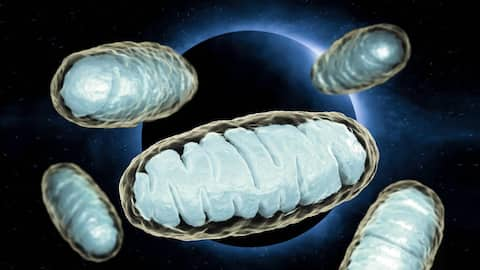New evidence suggests earlier emergence of complex life on Earth
What's the story
A team of scientists has unearthed compelling evidence that complex life on Earth may have originated 1.5 billion years earlier than previously believed.
The groundbreaking discovery was made in Gabon, where the researchers found indications deep within rocks that environmental conditions conducive to animal life existed 2.1 billion years ago.
However, it is believed these early organisms were restricted to an inland sea and did not spread globally before becoming extinct.
Theory
Challenging conventional beliefs about the dawn of life
This new theory challenges the widely accepted scientific belief that animal life began around 635 million years ago.
The discovery contributes to an ongoing debate about mysterious formations found in Franceville, Gabon, and whether they are indeed fossils.
The team of scientists, led by Professor Ernest Chi Fru from Cardiff University, examined these rocks for signs of life-supporting nutrients like oxygen and phosphorus.
Hypothesis
Early life forms resembling slime mould, says scientist
According to Professor Ernest Chi Fru, if his theory is correct, these early life forms would have resembled slime mould - a brainless single-cell organism that reproduces with spores.
This hypothesis emerged from the study of the Francevillian formation discovered a decade ago.
Chi Fru and his colleagues believe this formation consists of fossils indicating evidence of self-propelled life, suggesting complex life could have begun earlier than previously thought.
Doubts
Skepticism surrounds new theory of early complex life
Despite the groundbreaking findings, some scientists remain skeptical.
Professor Graham Shields from University College London expressed reservations about the implications of the discovery.
Shields highlighted the ongoing debate within the scientific community, expressing skepticism about the idea that higher nutrients 2.1 billion years ago could have led to the diversification necessary to form complex life.
Environment
Nutrient-Rich environment fostered early life, researchers suggest
To bolster their theory, Chi Fru's team analyzed sediment cores drilled from the rock in Gabon.
The rock's chemistry showed signs of a "laboratory" for life created just before the formation appeared.
They theorize that high levels of oxygen and phosphorus were produced by two continental plates colliding underwater, causing volcanic activity and creating a nutrient-rich shallow marine inland sea.
Evolution
Photosynthesis and oxygen: Catalysts for early life complexity
Chi Fru suggests that this protected environment allowed photosynthesis, leading to significant amounts of oxygen in the water.
He explained that this would have provided enough energy to support increases in body size and more complex behaviors seen in early, simple animal-like life forms, as evidenced by fossils from that period.
This theory offers a new perspective on how early life might have evolved on Earth.
